With all the changes on Pinterest, are you asking yourself “Is Pinterest a search engine anymore?” We answer that question and talk about where Pinterest is headed in this episode.
Over the past year, we’ve seen many changes on Pinterest. Many of you who have been using the platform as a marketing tool are asking if Pinterest is still the place you want to market your business. If you’re new to Pinterest you might be wondering if it is the right place for your business.
Today, we are going to cover several topics, including:
- ROI and Pinterest
- the evolution of Pinterest
- where Pinterest is likely heading in 2022.
You’ll learn why we believe Pinterest is different from other platforms, which makes it continue to be a valuable marketing tool.
First, I want to remind you of all the places you can find Pinterest marketing resources created by Simple Pin Media.
- The Simple Pin Media website – Our website has all the resources we talk about on the podcast.
- The Simple Pin Podcast – We produce one SPM podcast episode per week that is followed up with a newsletter-style weekly email containing all the latest Pinterest marketing news.
- Free Resource Guides – Be sure to download our Keyword Planner, Pinterest Image Guide, and our video course for Pinterest beginners.
- Instagram – We share even more Pinterest tips on Instagram! Get to know me and the SPM Team on a more personal level, and connect with us directly through direct messages.
Onto the question of the day:
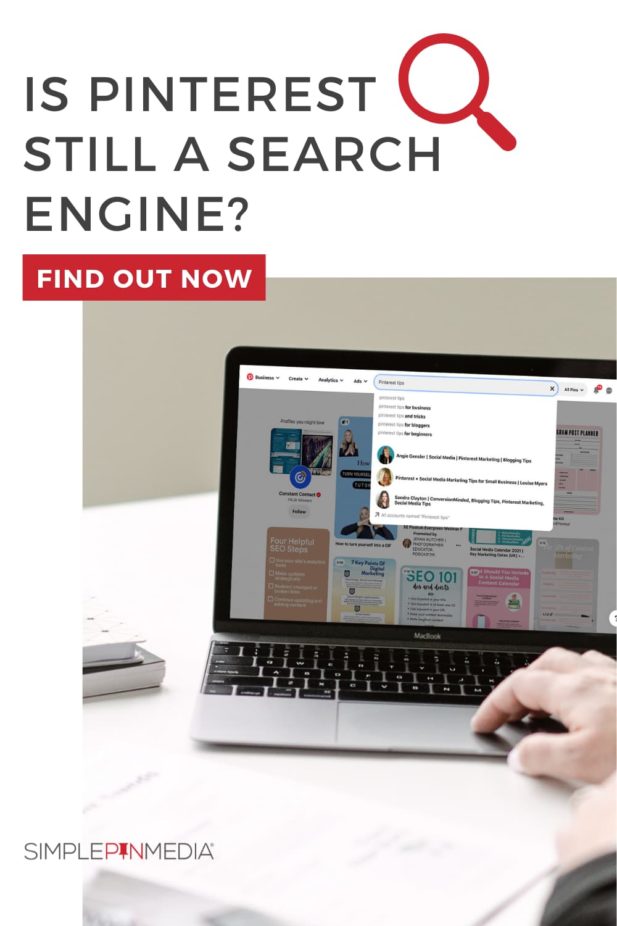
Is pinterest still a search engine?
Pinterest still operates as a search and discovery network. The pinner’s intent on Pinterest still drives what content is served up.
You’ll often hear me speak this phrase:
Pinners don’t care about you.
— Kate
What do I mean by this?
I mean that pinners are mainly interested in the benefit they can receive from your product, content, or service. They are not there for conversation. Understanding this pinner mindset is vital before you start marketing on Pinterest.
Pinners are interested in you hitting them with the “Aha!” moments of great ideas. Pinterest is the ultimate repository of life hacks.
Pinners find you by searching for something, which leads them to your content and then onto your website.
There will be a lot of people who bounce away quickly. Other people will stick around to look for more or they will save your pin for later.
Let’s explore the idea of someone who is planning a kitchen remodel. This pinner is going to save hundreds of kitchen remodel ideas. Later, they will narrow these pins down to the ideas they actually plan to incorporate into their own remodeling project. Eventually, they might arrive at your website looking to make a purchase for this project.
Pinterest is the place where pinners search for and gather ideas so they can take action on them later.
Pinterest Marketing ROI
The time you spend on Pinterest is super valuable. I would make the case that the the Return On Investment (ROI) of Pinterest is substantially better compared to Facebook or Instagram marketing because both your ads and organic pins last forever on Pinterest.
However, knowing the goal you want to achieve with Pinterest marketing is a necessary factor for determining your specific Pinterest ROI.
I teach a model where your business website is in the middle of a circle with all these arrows that point to it: Pinterest, Instagram, Google, and more. Each one of those arrows holds value because they create a flow to your website. The desired conversion typically happens on your website (e.g. sale or email sign-up).
When I started Simple Pin Media in 2015, Pinterest was the primary mechanism for driving traffic to my website. In the beginning, I said I could only focus on these two marketing platforms while also growing an email list.
I realized I wanted Pinterest to be a traffic driver that happened in the background. Investing in Pinterest as my traffic builder meant I needed to invest in:
- quality images
- a Pinterest scheduling tool
- education to learn best practices.
Facebook played a different role for me back then. I decided to make Facebook the place to build community. I never saw Facebook as my traffic builder.
I actually managed a free Facebook group community that grew to 20,000 people. It was a lot to manage. We decided to shut it down at the beginning of this year because it had morphed into a place for people to complain and trash Pinterest. It was taking up too much of my team’s time and was no longer productive and helpful for business-building.
Today, we still maintain a presence on Facebook primarily as a vehicle for ads.
Related: The Transition from Facebook Marketing to Pinterest Marketing
After taking Facebook off the table, we began to use Instagram as our new community-building platform. Currently, we use Instagram to build awareness and connect with people with the hope that they will join the Simple Pin community.
We’re currently figuring out how to break into the education arena. We’re looking into teaching more on our YouTube channel and investing more in videos to teach people who are new to Pinterest.
All of these different marketing arms lead to the core of our business, which is the Simple Pin Media website.
For Pinterest, our investment has brought such a great ROI because we are reaching so many people daily in the background with organic pins and ads that lead to our website.
When you ask what is the ROI of a platform, what you need to understand first is why you are investing in that platform.
— Kate
When you ask what is the ROI of a platform, what you need to understand first is why you are investing in that platform. When you know why. then you can assign a data point to your purpose. I cannot stress understanding the “why” enough.
It’s easy for people to come to me and say, “My Pinterest ROI isn’t worth it.” Right away I’ll ask them to share their the numbers. Usually, they don’t have any. They just feel like Pinterest is not worth it.
That’s not addressing ROI. It simply means that you don’t like Pinterest. That’s fine. If you don’t like Pinterest or if it’s frustrating you, and you can outsource it.
But don’t use the term ROI until you understand the why behind using Pinterest and the data point(s) you can assign to it.
If your goal is to attract email subscribers from Pinterest and you’re getting zero email subscribers, then you’re right. The ROI is poor. But if the goal shifts to something different like sales, and you realize that each sale is worth $20 and you’re only investing $10, then it suddenly Pinterest ROI is worth it.
Related: Converting Pinterest Traffic to Sales
I’m laying all of this out because I want you to understand why you’re using Pinterest. Whether Pinterest changes into more of a social network, remains a search engine, or becomes a hybrid of both it is important to understand its value as a marketing tool by viewing it through the lens of your goal.
Evolution of the Pinterest Platform
I think it is helpful for you to understand Pinterest’s history because it plays into your investment in Pinterest as a marketing tool.
Pinterest started in 2010 with three entrepreneurs who came together to create a tool to help people collect ideas they were passionate about. The platform soon became a place where people found inspiration through what other people shared. All of a sudden, everyone could see the ideas on their friend’s boards.
You could find super cool ideas through images and that was all the context you needed. If you wanted more context, you could click through to their website for details. In the beginning (between 2010 and 2014), all these ideas were distributed onto the platform, in chronological order, to the people that followed you.
In 2014 Pinterest started to pave the way for ads. All of a sudden there was an algorithm determining content distribution (the Smart Feed), and visual search became the focal point. Keywording became a crucial factor determining how content was distributed. Pinterest’s algorithm matured, so that content distribution changed from a chronological order model to an algorithm based on pinner habits.
Around this same time, we also witnessed the a switch from using horizontal images to vertical images. People figured out that longer images take up more landscape, which was important for this new algorithm favoring engagement.
Eventually, people started putting text on their images and attempted to “game the system”. They began creating gigantic vertical pins that were larger than the 2:3 ratio. Pinterest decided to pump the breaks and force a return to 2:3 ratio images. They began to truncate excessively long images.
Related: What’s the Best Pinterest Image Size?
Then we started to hear rumblings about video in 2017.
Video had been going crazy on Facebook with the Tasty-style hands in pans videos. Then Instagram jumped on this short-form video train and started using stories.
We all began to wonder if video would work on Pinterest too. Would Pinners adopt video?
I feel like we were asking the question of whether video would work on Pinterest all the way to 2019.
(I have several old podcasts on this. You can listen to them if you want a history lesson about what was happening around that time)
Then videos started to take off and now there’s a ton of videos on Pinterest. Suddenly we had all these marketing tools using video and competing with one another.
Pinterest wants to be a search engine for ideas. Google (also a search engine) is their main competitor. So what makes Pinterest different?
It all comes down to the user’s intent.
It’s important to distinguish a user’s Google search habits. People use Google search to:
- find local things
- find answers to quick questions
- find how to do something (e.g., how to take a screenshot on your computer).
In contrast to Google, people use Pinterest because they are interested in the visual search. That visual search habit is why Pinterest started developing AI for visual recognition.
In 2019, when Pinterest became a publicly traded company, this AI development led to some cool things. They started to release more shopping features and tools geared towards eCommerce.
People at Pinterest know their platform is the great informer when it comes to researching a purchase. Pinterest is where people go to collect ideas, find what they love, and return later to choose a place to buy.
Pinterest started to explore how that could all happen on their platform while not becoming a point of sale. They still wanted pinners to go to a website because that’s where creators want the purchase transaction to take place.
As 2020 rolled around, Pinterest was focused on shopping features and developing its AI. Then they get the boost of a lifetime–The Pandemic.
Pinterest users grew like crazy and Pinterest released something called story pins (renamed Idea Pins later on).
They saw the writing on the wall when TikTok exploded in popularity and Instagram followed suit. Pinterest wanted a piece of the action and wanted to keep people on their platform longer.
The move to idea pins is what has led to the question — Is Pinterest a search engine? It was triggered because idea pins don’t link to anything. Many Pinterest marketers don’t like this change and find it frustrating. Pinterest marketing used to be straightforward. You could just pin your pin, walk away, it would do the work.
It was amazing when it happened that way, but we are not there now.
What is the main focus of Pinterest Right Now?
Right now, Pinterest is still mainly a search platform with a little bit of social element mixed in.
The only way to react socially on Pinterest is through comments and reactions on pins. You can also share pins with others but that’s already been an option for quite a while. So Pinterest does have a bit of a social bent. But pinners still come to search for inspiration, not for conversation and interaction with others.
We see Pinterest as a way to get new leads. It’s a place for you to get in front of people that you’ve never met before.
On Instagram, you’ve kind of already met them and you’re saying, “Hey, I want to hang out with you.” On Pinterest, the pinner says, “I don’t know you. What are you going to do for me?”
Remember, they don’t care about you, they care about how your idea or product can help them.
With the introduction of idea pins, we have seen a shift in the way Pinterest drives traffic to websites. However, we have also seen that you can use idea pins and video pins to warm the pinner up a little more. This could mean pinners are even more qualified as an audience when they arrive on your website.
This is great news for your relationship with brands and your ability to sell products through Pinterest.
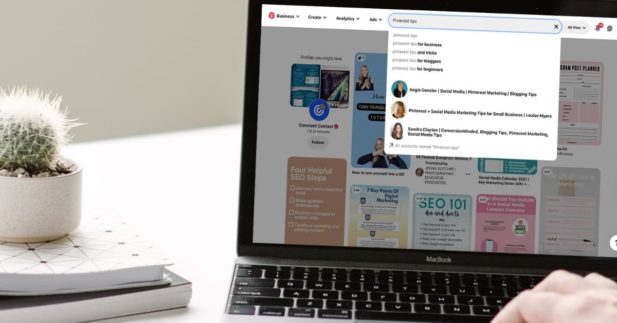
Where is Pinterest Headed in 2022?
To sum it all up, I think going into 2022, we are going to see a continued emphasis on shopping, short-form video, and idea pins with a continuous foundation of search and discovery.
When you draw that circle diagram I discussed earlier and you add that arrow from Pinterest, you can assign a purpose to it by answering these questions:
- Why do you use Pinterest marketing for your business?
- What is the unique value that Pinterest brings to your business?
- What key performance indicators (KPIs) do you need to determine your ROI?
My goal today was to bring you up to speed on Pinterest and to answer that nagging question — Is Pinterest a search engine?
Yes, Pinterest is changing but the search and discovery platform foundation remains consistent. We still think Pinterest is a powerful marketing tool and that it’s going to be around for a long time.
I’m reaffirming my commitment to teach you how to use Pinterest in the best way to help grow your business without wasting your time. I want to help you get new people to:
- buy your products
- purchase your services
- read your blog.
So here is your action item:
Determine your purpose for Pinterest. Really think about why you are using Pinterest marketing, how you can get revived for 2022, and how you can use all the new Pinterest features we’ve been talking about here on the podcast.
For Further Listening/Reading:
- Is Pinterest Social Media?
- Pinterest is Like Vegas: Bet on the New Features
- How Pinterest’s Goals for 2021 Should Be Influencing Your Marketing Strategy
FREE Download - Getting Started with KPIs Guide

Learn how to track Key Performance Indicators to measure your business success. Download our FREE printable Getting Started with KPIs Guide
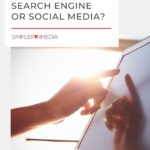


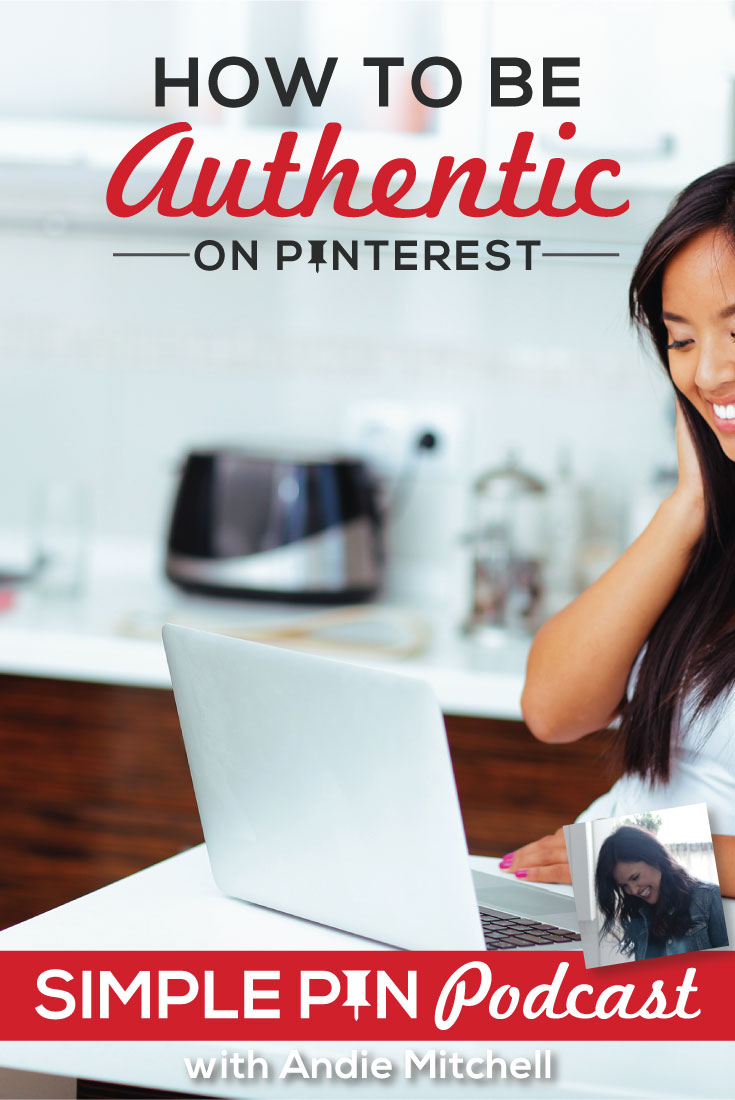



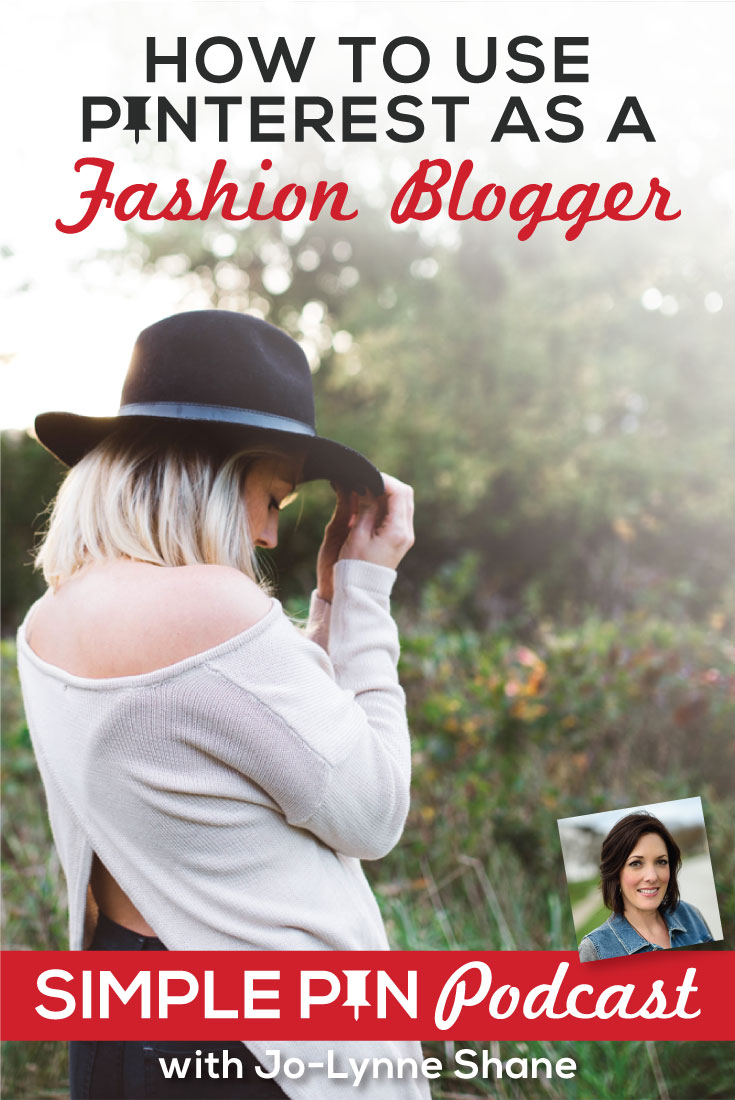

I love to listen to ‘Simple Pin Podcast’.
There’s nothing on the web, that could teach the ins-n-outs of Pinterest, in a simpler & more intriguing manner.
All credits go to Kate.
Keep up the good work!
You say you think Pinterest is still going to be able to drive traffic to blogs… but is this so for food blogs? Or blogs that don’t sell a product? Pinterest really seems to just be going in the direction of e-commerce. Especially if Paypal is getting in the mix, do you think there’s still a reason to continue investing time and energy in the platform if you’re someone who uses pinterest to drive people to your recipes? I know Pinterest is still where I go for recipe inspiration, and I sure don’t want to get it from idea pins. I’m hoping others feel the same way… but I wonder.
Absolutely! Bloggers are in a unique position of having awesome content that warms an audience up. Things may shift a bit with the ability to partner with brands in idea pin ads but ultimately content (like recipes) is what users want.
I always was concerned in this topic and still am, thankyou for posting.